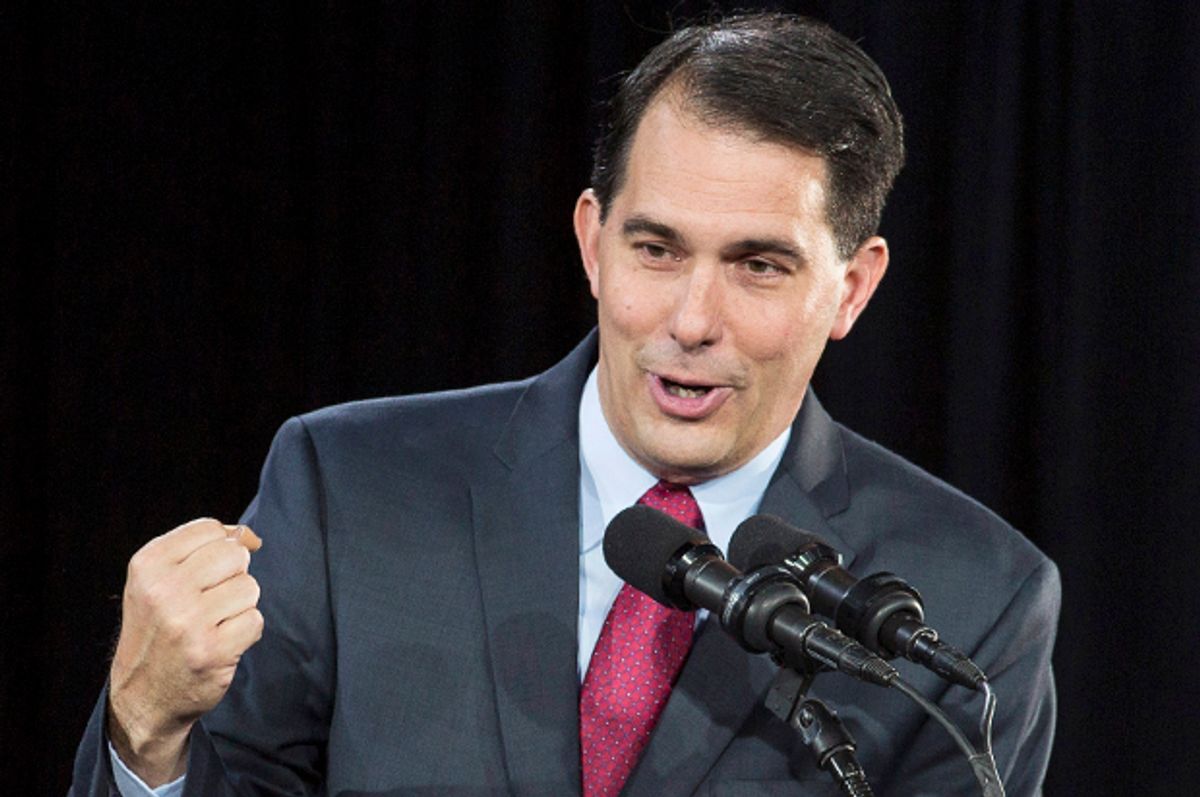Wisconsin Gov. Scott Walker moved one step closer toward a 2016 presidential bid on Tuesday, announcing the formation of a political committee that will allow him to gauge support for a White House run.
Walker filed papers to establish the tax-exempt committee, Our American Revival, last week, the clearest sign yet that he is interested in seeking the Oval Office. “Our American Revival encompasses the shared values that make our country great; limiting the powers of the federal government to those defined in the Constitution while creating a leaner, more efficient, more effective and more accountable government to the American people,” Walker said in a statement Tuesday. The committee will allow Walker to travel the country and meet with prospective donors as he contemplates entering the 2016 contest.
The Republican became a conservative hero in 2011, when Walker kicked off his first gubernatorial term by proposing a budget that stripped public employees of collective bargaining rights and curbed other union benefits. Despite a fierce public backlash, the GOP-controlled legislature passed the law, and Walker survived a labor-backed recall effort in 2012.
Public employee union membership has plummeted in the state since Walker signed the law, Act 10.
Long considered a potential GOP contender in 2016, Walker was a prime Democratic target during his 2014 re-election campaign. But despite some polls indicating his political career was in serious jeopardy, Walker defeated his Democratic opponent, businesswoman Mary Burke, by nearly six percentage points.
Shortly after his re-election victory, Walker sounded a note of caution about the presidential buzz surround him, telling a local TV reporter, "The closer you get to something like that the more you realize — and I say this only half jokingly — that you have to be crazy to want to be president."
But a Walker bid is considerably less crazy than, say, a George Pataki for President campaign. Not only did Walker win many Tea Party and business-minded fans with his union-busting effort, but the governor is also an evangelical Christian who opposes abortion rights and marriage equality, even as he acknowledges that the courts have effectively settled the latter issue in his home state.
As the New York Times' Nate Cohn persuasively argued earlier this month, Walker may be well-positioned to emerge as the GOP's standard-bearer next year. Like Jeb Bush and Mitt Romney, he boasts significant establishment backing, but unlike Bush, who last ran for office in 2002, and Romney, who has lost three of the four races he's run so far, Walker has survived tough political battles in recent years. Moreover, he harbors stridently conservative views like Ted Cruz, but unlike the Texas senator, Walker isn't known for his scorched-earth tactics.
Cohn also contends that should Romney and Bush both run, Kentucky Sen. Rand Paul may be the prime beneficiary; by splitting establishment support, Bush and Romney may clear a path for the insurgent Paul. Of course, the prospect of a Paul nomination horrifies GOP bigwigs -- all the more reason for them to coalesce behind a consensus alternative like Walker.

Shares